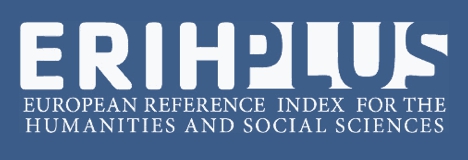The social representation of teaching in basic education geography
Abstract
Literature and research on the social significance and attractiveness of the teaching career in Brazil have shown a growing devaluation of this profession, especially being a teacher of school geography. This is because Geography was introduced in school curriculum as a theoretical tool of recognition of the national territory, as well as with the intention of integrating the nation-state and protecting its borders. Because of this scenario, this discipline prioritized the description and characterization, mainly of physical aspects, of places and their respective populations, for a long time. Thus, despite having developed a rich theoretical-methodological framework, with which we began to observe the geographic space from other angles, Geography has until today, in common sense, the stigma of being an encyclopedic school discipline, which has little relation to daily life, and that, therefore, requires the students of Basic Education with an exacerbated effort of memory. In order to contribute to this discussion, the present article aims to approach this theme from the Theory of Social Representations (MOSCOVICI, 1969). From this perspective we seek to identify the theoretical references, already existing questions that deal with the initial formation and the construction of a social representation of the condition of being professor of Geography in Brazil. To support this discussion, we use as theoretical reference authors such as Tardif (2002), Nóvoa (1997), Callai (2003) Pontuschka (2009, 2010), among others. Thus we infer the existence of a geography school that inserted it in an uncritical view of reality, even though its theoretical discourse directs it to the opposite direction.
References
CALLAI, H. C. A formação do profissional da Geografia. 2ed. Ijuí-RS. Editora Unijuí, 2003.
CAVALCANTI, Lana de Sousa. Geografia, escola e construção de conhecimentos. Campinas, Papirus, 1998.
CAVALCANTI, Lana de Sousa. Geografia e práticas de ensino. Goiânia: Alternativa, 2006.
CHAVES, Adriana Josefa Ferreira. Glossário- Oficina de estudos pedagógicos- OEP. Compilado por FORESTI, MCPP. Centro de Estudos Pedagógicos da UNESP, 2014.
ESTEVE, J. M. O mal-estar docente– a sala de aula e a saúde dos professores. Bauru: Edusc, 1999.
FREIRE, Paulo. Pedagogia da Autonomia. 43. ed. Rio de Janeiro. Paz e Terra, 2011.
GATTI, B. A. et al. Atratividade da carreira docente no Brasil. São Paulo: Fundação Victor Civita, Fundação Carlos Chagas, 2010.
GATTI, B. A. BARRETO, E.S. de S. Professores do Brasil: impasses e desafios. Brasília: Unesco, 2009.
GRAVES, Robert. Os Mitos Gregos I. Tradução de Fernanda Branco. Lisboa: Publicações Dom Quixote, 1990.
IMBERNÓN. Formação docente e profissional: formar-se para a mudança e a incerteza. São Paulo. Cortez, 2000.
JODELET, D. Representações Sociais: um domínio em expansão. In. JODELET, D. (Org.) As representações sociais. Rio de Janeiro. EdUERJ. 2001.
KAERCHER, N. A. Desafios e utopias no ensino de Geografia. 3.ed. Santa Cruz do Sul-RS, EDUNISC, 2007.
LOPES, Claudivan Sanches. O Professor de Geografia e os saberes profissionais: o processo formativo e o desenvolvimento da profissionalidade. Tese (Doutorado em Geografia Humana) - Faculdade de Filosofia, Letras e Ciências Humanas. São Paulo, 2010.
MINAYO, M. C. O desafio do conhecimento: pesquisa qualitativa em saúde. Rio de Janeiro: HUCITEC, 1994.
MONBEIG, P. Papel e Valor do Ensino da Geografia e de sua Pesquisa. IBGE – Conselho Nacional de Geografia, Rio de Janeiro. 1956.
MOSCOVICI, Serge. A Representação Social da Psicanálise. Rio de Janeiro: Zahar Editores, 1978.
MORIN, Edgar. A cabeça bem- feita: repensar a reforma, reformar o pensamento. 11 ed. Rio de Janeiro: Bertrand Brasil, 2005.
NÓVOA, Antonio. (Coord.) Os professores e a sua formação. Lisboa. Publicações Dom Quixote. 1997.
PEREIRA, G. R. de M. Servidão ambígua: valores e condição do magistério. São Paulo. Escrituras Editora. 2001.
PONTUSCHKA, Nídia Nacib; PAGANELLI, Tomoko, Iyda; CACETE, Núria Hanglei. Para ensinar e aprender Geografia. São Paulo: Cortez, 2009.
PONTUSCHKA, N. N. A formação inicial do professor: debates. In: SANTOS, L. et al. Convergências e tensões no campo da formação e do trabalho docente. Belo Horizonte-MG. Autêntica, 2010.
ROCHA, Genylton Odilon Rego da.A formação do professor de Geografia: uma breve revisão bibliográfica sobre as concepções teóricas. Observatorium: Revista Eletrônica de Geografia, v.3, n.7, p.134-150, out. 2011. Disponível em
SANTOS. C.S; ANDRADE, F. C. Representações Sociais e formação do professor: revelando interseções do discurso. 1. ed. João Pessoa: Editora Universitária/ UFPB. 2002.
SAVIANI, D. Pedagogia Histórico- Crítica: Primeiras aproximações. 9. ed. Campinas: Autores Associados, 2005.
SEABRA, M.F.G. Estudos Sociais e vulgarização do magistério e do ensino de 1° e 2° graus. Boletim Paulista de Geografia, Associação dos Geógrafos Brasileiros- Seção São Paulo, n° 58, 1981.
SILVA, Josélia Saraiva. Habitus docente e representação social do “ensinar geografia” na educação básica de Teresina- Piauí. Tese. (Doutorado em Educação). Faculdade de Educação. Universidade Federal do Rio Grande no Norte. 2007.
TARDIF, Maurice. Saberes docentes e formação profissional. Petrópolis. Vozes. 2002.

This work is licensed under a Creative Commons Attribution-NonCommercial 4.0 International License.
Policy Proposal for Free Access Journals
Authors who publish in this journal agree to the following terms:
a. Authors retain the copyright and grant the journal the right of first publication, with the work simultaneously licensed under the Creative Commons Attribution License which allows the sharing of the work with acknowledgment of the authorship of the work and initial publication in this journal.
b. Authors are authorized to take additional contracts separately, for non-exclusive distribution of the version of the work published in this journal (eg publish in institutional repository or as a book chapter), with acknowledgment of authorship and initial publication in this journal.
c. Authors are allowed and encouraged to publish and distribute their work online (eg in institutional repositories or on their personal page) at any point before or during the editorial process, as this can generate productive changes, as well as increase the impact and The citation of published work (See The Effect of Free Access).





















